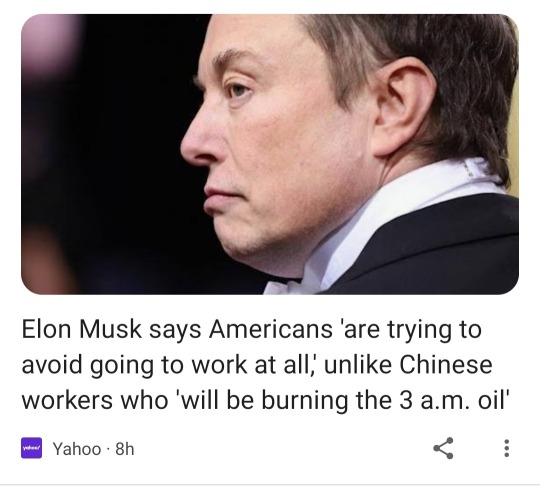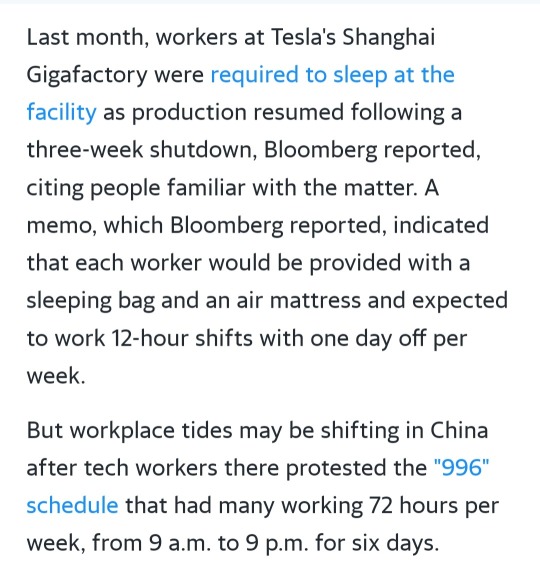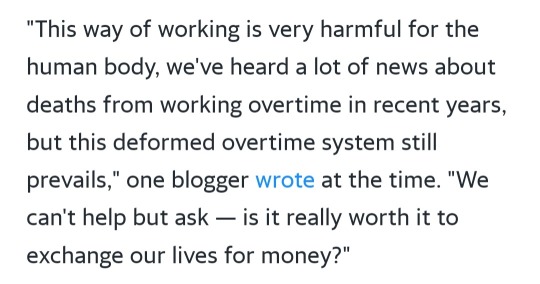#China Human Rights Violations
Explore tagged Tumblr posts
Text
Hundreds of Tibetans protesting against a Chinese dam were rounded up in a harsh crackdown earlier this year, with some beaten and seriously injured, the BBC has learnt from sources and verified footage.
Such protests are extremely rare in Tibet, which China has tightly controlled since it annexed the region in the 1950s. That they still happened highlights China's controversial push to build dams in what has long been a sensitive area.
Claims of the arrests and beatings began trickling out shortly after the events in February. In the following days authorities further tightened restrictions, making it difficult for anyone to verify the story, especially journalists who cannot freely travel to Tibet.
But the BBC has spent months tracking down Tibetan sources whose family and friends were detained and beaten. BBC Verify has also examined satellite imagery and verified leaked videos which show mass protests and monks begging the authorities for mercy.
The sources live outside of China and are not associated with activist groups. But they did not wish to be named for safety reasons.
In response to our queries, the Chinese embassy in the UK did not confirm nor deny the protests or the ensuing crackdown.
But it said: "China is a country governed by the rule of law, and strictly safeguards citizens' rights to lawfully express their concerns and provide opinions or suggestions."
The protests, followed by the crackdown, took place in a territory home to Tibetans in Sichuan province. For years, Chinese authorities have been planning to build the massive Gangtuo dam and hydropower plant, also known as Kamtok in Tibetan, in the valley straddling the Dege (Derge) and Jiangda (Jomda) counties.
Once built, the dam's reservoir would submerge an area that is culturally and religiously significant to Tibetans, and home to several villages and ancient monasteries containing sacred relics.
One of them, the 700-year-old Wangdui (Wontoe) Monastery, has particular historical value as its walls feature rare Buddhist murals.
The Gangtuo dam would also displace thousands of Tibetans. The BBC has seen what appears to be a public tender document for the relocation of 4,287 residents to make way for the dam.
The BBC contacted an official listed on the tender document as well as Huadian, the state-owned enterprise reportedly building the dam. Neither have responded.
Plans to build the dam were first approved in 2012, according to a United Nations special rapporteurs letter to the Chinese government. The letter, which is from July 2024, raised concerns about the dam's "irreversible impact" on thousands of people and the environment.
From the start, residents were not "consulted in a meaningful way" about the dam, according to the letter. For instance, they were given information that was inadequate and not in the Tibetan language.
They were also promised by the government that the project would only go ahead if 80% of them agreed to it, but "there is no evidence this consent was ever given," the letter goes on to say, adding that residents tried to raise concerns about the dam several times.
Chinese authorities, however, denied this in their response to the UN. "The relocation of the villages in question was carried out only after full consultation of the opinions of the local residents," the Permanent Mission of the People's Republic of China to the United Nations office said in a letter from September 2024.
It added: "Local government and project developers funded the construction of new homes and provided subsidies for grazing, herding and farming. As for any cultural relics, they were relocated in their entirety."
But the BBC understands from two Tibetan sources that, in February, officials had told them they would be evicted imminently, while giving them little information about resettlement options and compensation.
This triggered such deep anxiety that villagers and Buddhist monks decided to stage protests, despite knowing the risks of a crackdown.
'They didn't know what was going to happen to them'
The largest one saw hundreds gathering outside a government building in Dege. In a video clip obtained and verified by the BBC, protesters can be heard calling on authorities to stop the evictions and let them stay.
Separately, a group of residents approached visiting officials and pleaded with them to cancel plans to build the dam. The BBC has obtained footage which appears to show this incident, and verified it took place in the village of Xiba.
The clip shows red-robed monks and villagers kneeling on a dusty road and showing a thumbs-up, a traditional Tibetan way of begging for mercy.
In the past the Chinese government has been quick to stamp out resistance to authority, especially in Tibetan territory where it is sensitive to anything that could potentially feed separatist sentiment.
It was no different this time. Authorities swiftly launched their crackdown, arresting hundreds of people at protests while also raiding homes across the valley, according to one of our sources.
One unverified but widely shared clip appears to show Chinese policemen shoving a group of monks on a road, in what is thought to be an arrest operation.
Many were detained for weeks and some were beaten badly, according to our Tibetan sources whose family and friends were targeted in the crackdown.
One source shared fresh details of the interrogations. He told the BBC that a childhood friend was detained and interrogated over several days.
"He was asked questions and treated nicely at first. They asked him 'who asked you to participate, who is behind this'.
"Then, when he couldn't give them [the] answers they wanted, he was beaten by six or seven different security personnel over several days."
His friend sustained only minor injuries, and was freed within a few days. But others were not so lucky.
Another source told the BBC that more than 20 of his relatives and friends were detained for participating in the protests, including an elderly person who was more than 70 years old.
"Some of them sustained injuries all over their body, including in their ribs and kidneys, from being kicked and beaten… some of them were sick because of their injuries," he said.
Similar claims of physical abuse and beatings during the arrests have surfaced in overseas Tibetan media reports.
The UN letter also notes reports of detentions and use of force on hundreds of protesters, stating they were "severely beaten by the Chinese police, resulting in injuries that required hospitalisation".
After the crackdown, Tibetans in the area encountered even tighter restrictions, the BBC understands. Communication with the outside world was further limited and there was increased surveillance. Those who are still contactable have been unwilling to talk as they fear another crackdown, according to sources.
The first source said while some released protesters were eventually allowed to travel elsewhere in Tibetan territory, others have been slapped with orders restricting their movement.
This has caused problems for those who need to go to hospital for medical treatment and nomadic tribespeople who need to roam across pastures with their herds, he said.
The second source said he last heard from his relatives and friends at the end of February: "When I got through, they said not to call any more as they would get arrested. They were very scared, they would hang up on me.
"We used to talk over WeChat, but now that is not possible. I'm totally blocked from contacting all of them," he said.
"The last person I spoke to was a younger female cousin. She said, 'It's very dangerous, a lot of us have been arrested, there's a lot of trouble, they have hit a lot of us'… They didn't know what was going to happen to them next."
The BBC has been unable to find any mention of the protests and crackdown in Chinese state media. But shortly after the protests, a Chinese Communist Party official visited the area to "explain the necessity" of building the dam and called for "stability maintenance measures", according to one report.
A few months later, a tender was awarded for the construction of a Dege "public security post", according to documents posted online.
The letter from Chinese authorities to the UN suggests villagers have already been relocated and relics moved, but it is unclear how far the project has progressed.
The BBC has been monitoring the valley via satellite imagery for months. For now, there is no sign of the dam's construction nor demolition of the villages and monasteries.
The Chinese embassy told us authorities were still conducting geological surveys and specialised studies to build the dam. They added the local government is "actively and thoroughly understanding the demands and aspirations" of residents.
Development or exploitation?
China is no stranger to controversy when it comes to dams.
When the government constructed the world's biggest dam in the 90s - the Three Gorges on the Yangtze River - it saw protests and criticism over its handling of relocation and compensation for thousands of villagers.
In more recent years, as China has accelerated its pivot from coal to clean energy sources, such moves have become especially sensitive in Tibetan territories.
Beijing has been eyeing the steep valleys and mighty rivers here, in the rural west, to build mega-dams and hydropower stations that can sustain China's electricity-hungry eastern metropolises. President Xi Jinping has personally pushed for this, a policy called "xidiandongsong", or "sending western electricity eastwards".
Like Gangtuo, many of these dams are on the Jinsha (Dri Chu) river, which runs through Tibetan territories. It forms the upper reaches of the Yangtze river and is part of what China calls the world's largest clean energy corridor.
Gangtuo is in fact the latest in a series of 13 dams planned for this valley, five of which are already in operation or under construction.
The Chinese government and state media have presented these dams as a win-win solution that cuts pollution and generates clean energy, while uplifting rural Tibetans.
In its statement to the BBC, the Chinese embassy said clean energy projects focus on "promoting high-quality economic development" and "enhancing the sense of gain and happiness among people of all ethnic groups".
But the Chinese government has long been accused of violating Tibetans' rights. Activists say the dams are the latest example of Beijing's exploitation of Tibetans and their land.
"What we are seeing is the accelerated destruction of Tibetan religious, cultural and linguistic heritage," said Tenzin Choekyi, a researcher with rights group Tibet Watch. "This is the 'high-quality development' and 'ecological civilisation' that the Chinese government is implementing in Tibet."
One key issue is China's relocation policy that evicts Tibetans from their homes to make way for development - it is what drove the protests by villagers and monks living near the Gangtuo dam. More than 930,000 rural Tibetans are estimated to have been relocated since 2000, according to Human Rights Watch (HRW).
Beijing has always maintained that these relocations happen only with the consent of Tibetans, and that they are given housing, compensation and new job opportunities. State media often portrays it as an improvement in their living conditions.
But rights groups paint a different picture, with reports detailing evidence of coercion, complaints of inadequate compensation, cramped living conditions, and lack of jobs. They also point out that relocation severs the deep, centuries-old connection that rural Tibetans share with their land.
"These people will essentially lose everything they own, their livelihoods and community heritage," said Maya Wang, interim China director at HRW.
There are also environmental concerns over the flooding of Tibetan valleys renowned for their biodiversity, and the possible dangers of building dams in a region rife with earthquake fault lines.
Some Chinese academics have found the pressure from accumulated water in dam reservoirs could potentially increase the risk of quakes, including in the Jinsha river. This could cause catastrophic flooding and destruction, as seen in 2018, when rain-induced landslides occurred at a village situated between two dam construction sites on Jinsha.
The Chinese embassy told us that the implementation of any clean energy project "will go through scientific planning and rigorous demonstration, and will be subject to relevant supervision".
In recent years, China has passed laws safeguarding the environment surrounding the Yangtze River and the Qinghai-Tibetan plateau. President Xi has personally stressed the need to protect the Yangtze's upper reaches.
About 424 million yuan (£45.5m, $60m) has been spent on environmental conservation along Jinsha, according to state media. Reports have also highlighted efforts to quake-proof dam projects.
Multiple Tibetan rights groups, however, argue that any large-scale development in Tibetan territory, including dams such as Gangtuo, should be halted.
They have staged protests overseas and called for an international moratorium, arguing that companies participating in such projects would be "allowing the Chinese government to profit from the occupation and oppression of Tibetans".
"I really hope that this [dam-building] stops," one of our sources said. "Our ancestors were here, our temples are here. We have been here for generations. It is very painful to move. What kind of life would we have if we leave?"
#nunyas news#sadly this won't get much attention#because western college students#are ok with china violating human rights#and colonizing territory#and doing ethnic genocides
11 notes
·
View notes
Text
@almostbiracial Someone is jealous they will never be as girlboss as Rachel Edri the cookie queen 🤭🤭🤭🤭

Also psst, report this clown for badmouthing Rachel (and that second pathetic suibait attempt lol)
#Rachel my queen#also imperial powers? what like Russia/China/Iran the big human rights violators who are on your side#lmao cry louder#Hamas endorsed Russia's invasion in Ukraine btw
20 notes
·
View notes
Text
Which side of history do you want to be on?
#uyghurs#genocide#ethnic cleansing#china#sheglam#makeup#shein#fast fashion#funding a genocide#human rights#human rights violation#overconsumption#haul#makeup tips
4 notes
·
View notes
Text
Distraction wherever you are heading. Gaza houses and streets 😠💔❤️🔥
#gaza#palestine#israeli war crimes#war crimes#war criminals#free gaza#united nations#amnesty international#unicef#united kingdom#russia#china#human rights violation#crimes against humanity#humanitarian crisis#human rights violations#human rights watch#space#astronomy#star wars#yellowjackets#painting#art#israeli lies#save children#holocaust in gaza#free palestine#free people
6 notes
·
View notes
Text
At this point I'm considering blocking anything to do with China or Russia on tumblr tbh.
Like yes everyone knows the US sucks. Yes we know about the internet censorship and racism and transphobia and rapidly increasing human rights violations in the US. It sucks bad. It sucks massive humongous balls.
Unfortunately. That does not mean that China and Russia don't also suck a little bit. While this may be shocking for US Americans and other people poisoned by constant barrage of US politics in their feeds, many countries exist. And they can, in fact, suck at the same time. And they do.
This post was made by someone living in a country that's direct neighbor to Russia so US Americans stay quiet please.
#this post was inspired by the leftist tumblr gang that hates the US enough to defend other human rights violating authoritarian hellscapes#and they're right to hate the US! but I think maybe they should also look outside of it. Sometimes.#there's a lot of awesome things about the history and culture and people of US/China/Russia/etc etc. However.#Those things are not invalidated by NOR do they invalidate the atrocities
4 notes
·
View notes
Text
youtube
Chinese Cult Falun Gong not only runs the Shen Yun ballet shows, but also run the Epoch TImes, New Tang Dynasty NTD Television, as well as dozens of other fake media outlets. The cult leader Li Hongzhi tells people his followers can fly, and see through walls.
For this deep dive, I bring in chinese comedian Feng Chao, to help me unravel the convoluted mystery of Falun Gong, organ harvesting, china, ballet and much more.
🙌🏻Patreon: / kyleandersoncomedy
🤡Discord: / discord
🔥Development Hell, a podcast about movies that were hard to make: https://podcasts.apple.com/us/podcast...
🖥Extremely Internet, a podcast about wild internet stories: https://podcasts.apple.com/us/podcast...
Hot Pot King's Full Video: • China Uncensored is Falun Gong (Cult)
"Okay, This is Epoch" Tom and Jerry video: • Okay, This Is Epoch
#FalunGong#Breadtube#EpochTimes
#Eyeball Zone#Kyle Anderson#Shen Yun#cult#religion#organ harvesting#Epoch Times#Falun Gong#Li Hongzhi#information#misinformation#propaganada#human rights violations#China#falun dafa#QAnon#racist#suicide#Bodies#Amnesty International
2 notes
·
View notes
Text
According to an economy, an environment at a working place can be based on health and safety.
Since the environment doesn`t meet requirements based on health and safety, an insurance can make a company fined in a case of an accident.
For an advice about an economy you can ask here, and the economy can provide a service in an industry you work in.




#An economy#An environment#health and safety#requirements#An insurance#A company#An accident#An advice#A private service#A service#An industry#Work#elon musk#america#china#economy#social justice#late stage capitalism#end stage capitalism#capitalism#monster#scumbag#meme#i wish all meme#politics#tesla#greed#human rights#human rights violations#equality
121K notes
·
View notes
Text
Coca-Cola is now on the official BDS boycott list!
From the website:
November 2024
1) Why?
Because Coca-Cola is implicated in Israeli war crimes.
According to research by WhoProfits, the Central Beverage Company, known as Coca-Cola Israel, which is the exclusive franchisee of the Coca-Cola Company in Israel, “operates a regional distribution center and cooling houses in the [Israeli] Atarot Settlement Industrial Zone.” Furthermore, its subsidiary, Tabor Winery, “produces wines from grapes sourced from vineyards located on occupied land in settlements in the West Bank and Syrian Golan.”
The International Court of Justice affirmed in July 2024 that Israel’s entire occupation of Gaza and the West Bank, including East Jerusalem, is illegal, as are all Israeli settlements built on occupied land. As Israeli settlements – on occupied Palestinian and Syrian land – are considered war crimes under international law, Coke is complicit in a war crime.
Corporations that are implicated in the commission of international crimes connected to Israel’s unlawful occupation, racial segregation and apartheid regime - within or beyond the Palestinian territories occupied in 1967 - are all complicit and must be held accountable. Direct complicity includes military, logistical, intelligence, financial and infrastructure support. The corporations, as well as their boards of directors and executives, may face criminal liability for this complicity.
Local alternatives are popping up worldwide to substitute Coca-Cola, an unnecessary and replaceable beverage
Local alternatives to Coca-Cola have been gaining market share across the world, including in Palestine, China, Bangladesh, Sweden, Egypt, India, South Africa, Turkey, Lebanon and elsewhere.
2) Why NOW?
The BDS movement has always considered Coca-Cola boycottable but has not prioritized it as a target based on its careful and strategic target-selection criteria, so why endorse the Coke boycott now?
Human rights and health activists, among many others, have been campaigning against Coca-Cola and similarly complicit corporations for decades, including grassroots drives targeting the company for its complicity in Israel’s gross violations of Palestinian human rights.
During Israel’s ongoing, livestreamed genocide, Israeli soldiers have often been pictured with Coke cans, donated to them by various genocide-enabling groups. This has provoked even more anger against the company, particularly given that Israel is starving 2.3 million Palestinians in the occupied and besieged Gaza Strip, severely limiting their access to clean water and, as a result, inducing the mass spread of contagious diseases.
Given this context, Palestinian activists in Gaza and many BDS activists in the Arab world, in many Muslim-majority countries, and in some European countries as well, have called on the BDS movement to add Coke to its priority targets.
The BDS movement had previously targeted General Mills for its manufacturing of Pillsbury products in the illegal Atarot Settlement Industrial Zone - the same Zone where the Coke facility operates. Thanks to effective BDS campaigning, we won the demand for General Mills to end its business in Atarot. We know a campaign against Coke is winnable too.
Based on all the above, and given Coke’s large contribution (through business-as-usual and taxes) to Israel’s war chest during the genocide, the Palestinian BDS National Committee (BNC), the largest Palestinian coalition leading the global BDS movement, has endorsed the grassroots, organic #BoycottCoke campaigns to pressure the company to end its complicity in Israel’s illegal occupation, apartheid and genocide.

UPDATED VERSION!!!!
18K notes
·
View notes
Text
I will not be downloading RedNote for the same reasons that I do not have TikTok but I'm glad everyone is having fun and it is incredibly funny to see this whole thing backfire so tremendously onto the US government trying to fear monger about China and Chinese people
#like is there aome horrid shit going on in china? absolutely! but its not worse than the us#the whole stealing data thing is so funny bc im a person thats pretty paranoid about that stuff but like. you know who steals our data??#Companies! and the us government! talk about spying jfc#the human rights violations are coming from inside the house
0 notes
Text
10 arrested for writing gay erotica in China as part of nationwide crackdown
Russia passes bill to outlaw adoption by people from countries where gender-affirming care is legal
Gay clubgoers found guilty of “hooliganism” following Moscow raids
Cops beat gay couple in their homes as Belarus seeks to mimic Russia’s anti-LGBTQ+ laws
Russia: Man accused of organizing LGBTQ+ tours dies in jail
LGBTQ+ charities that you can donate to
#lgbtq+#lgbtqia#lgbtq#lgbtq community#human rights abuses#basic human rights#human rights violations#lgbt rights#lgbtq+ rights#russia#belarus news#republic of belarus#belarus#china#people's republic of china#lgbtqia rights#charities#lgbtq+ charities#charity#human rights#human rights for all#russian federation#putin#vladimir putin#discrimination#sexuality#gender identity#news#russia news#china news
0 notes
Text
if you want to not hear about an issue, then don't interact with it. don't vague post about it to try to make yourself feel better. don't act like ur the real victim because you have to hear about all the horrible stuff happening. but also tumblr reblogs have saved exactly 0 people and children. any win Palestine gets has come from Palestinians working their asses off themselves. not any westerners bullying people into social media slacktivism. this is "I am uncomfortable when we are not about me" vs. "Selfish: Man Builds Bird House when Jon Benet Ramsey's murder is still unsolved"

I literally just unfollowed somebody for putting this on my dash, like now is not the fucking time to get complacent and stick your head in the sand when people and children are being killed every second minute hour.
#and yes I know people on social media talking about palestine has helped them (not as much as some people on here think) but that's#a Palestinian accomplishment NOT YOURS#and if we take this stance to a logical conclusion “now is not the time to stick your head in the sand” there is NEVER a time to stick your#head in the sand there is always a genocide or human rights violation happening and majority of y'all saying this don't talk about it#because it's not trending#have you posted about the Uyghur genocide in china? the congolese genocide? hell the palestinian one has been going way before oct 8th
2K notes
·
View notes
Text
Okay a couple weeks ago I started this post trying to keep track of all the stuff going on in order to help remind us of everything that’s happened when the next election comes around. Well, because there’s just so much going on, I’ve realized trying to cram it all into one post isn’t going to work. So I’m going to do a new post every month and include links to the previous ones.
So here goes…
January 2025
February 2025
Donald Trump has enforced his tariffs on Mexico, Canada, and China. [x]
Donald Trump has put Mexico tariffs on hold for one month. [x]
Donald Trump allowed Elon Musk to begin dismantling USAID. [x]
Congress is voluntarily giving up its power and allowing Trump to make unilateral decisions. [x]
Darren Beattie has been made Under Secretary of State. [x]
Everything that Donald Trump has done so far lines up with Project 2025 [x]
The White House is drafting an executive order to eliminate the Department of Education [x]
Elon Musk, who nobody voted for or elected, has, essentially, hacked the government. [x]
El Salvador has agreed to take US deportees of any nationality. [x]
US Representative Andy Biggs is proposing a bill to abolish OSHA. [x]
Pam Bondi has been confirmed as Attorney General [x]
Donald Trump doesn’t think Palestinians should return to Gaza. [x]
Donald Trump says he’ll use US troops to “take over” the Gaza Strip. [x]
A federal judge has blocked Donald Trump’s executive order to end birthright citizenship. [x]
Donald Trump has banned trans women from women’s sports [x]
Donald Trump sanctions the International Criminsl Court. [x]
A judge has paused the federal “buyouts” [x]
DOGE: Member of DOGE resigns [x]
DOGE has been given access to the Department of Energy. [x]
Miscellaneous news about Elon Musk [x]
DOGE is using AI to infiltrate the Department of Education [x]
Russell Vought, author of Project 2025, has been confirmed as Director of OMB [x]
Democrats in Congress have introduced the Taxpayer Data Protection Act [x]
Donald Trump has flagged the words “women” “diverse” and “historically” from studies done by the National Science Foundation. [x]
New Mexico Representative Melanie Stansbury has introduced the Nobody Elected Elon Musk Act [x]
Democratic Congressional leaders have introduced the Stop the Steal Act [x]
Donald Trump has called for a review of funding for the United Nations [x]
Federal agencies are barred from celebrating Black History Month [x]
Donald Trump has frozen aid to South Africa and accused the South African government of racism against white South Africans [x]
Donald Trump wants to use Leavenworth Prison as a migrant detention facility and have it run by a for-profit company known for its numerous human rights violations. [x] [x]
Trump has told the Treasury to stop making pennies. [x]
Representative Mark Pocan (D-WI) proposes the E.L.O.N. M.U.S.K. Act (which stands for Eliminate Looting of Our Nation by Mitigating Unethical State Kleptocracy) [x]
Employees of the Consumer Financial Protection Bureau were told to stop all work and are now being told to stay home. [x]
Trump will impose 25% tariffs on steel and aluminum. [x]
Trump says Palestinians won’t be allowed back in Gaza if the US takes it over [x]
Tulsi Gabbard has been confirmed as director of national intelligence. [x]
Representative Buddy Carter (R-GA) has proposed a bill to change the name of Greenland to Red, White & Blue Land [x]
The DOJ has dropped the corruption charges against New York City mayor Eric Adams. [x]
An AP News reporter has been banned from the White House for using Gulf of Mexico instead of Gulf of America in its reporting. [x][x]
Senators Deb Fischer (R-NE) and Angus King (I-ME) are pushing for a tax credit that would encourage businesses to offer paid family leave. [x]
Representative Sara Jacobs (D-CA) has introduced the Protect US National Security Act [x]
The State Department (taxpayers) is paying Elon Musk $400 million for cybertrucks. [x]
Robert F. Kennedy Jr. has been confirmed as HHS Secretary. [x]
Trump is conducting a mass firing of the federal workforce. [x]
Senator Ted Cruz (R-TX) is creating a list of all the ‘woke’ science he wants to get rid of. [x]
References to transgender have been removed from the Stonewall National Monument. [x]
A 71 year old refugee living in Thailand has died because of the USAID freeze. [x][x]
Here’s a link to the Project 2025 Policy Agenda that Donald Trump claimed he didn’t know anything about.*
*He only claimed he didn’t know anything about it after it proved to be deeply unpopular with the general public.
I’m also including directories for both the House of Representatives and the Senate. That way, if you’re so inclined, you can also track the individual actions of every Senator and Representative.
Miscellaneous News
Representative Nancy Mace (R-SC) repeatedly uses a transphobic slur on the Congressional floor. [x]
Clarence Thomas is…being Clarence Thomas *sigh* [x]
Donald Trump fired the Chair of the Kennedy Center and named himself as the new Chair [x]
Trump said that no group of people in the history of America has been treated worse than the way the January 6th insurrectionists have been treated. [x]
Some people are impersonating ICE agents and harassing & assaulting people of color [x][x]
Trump’s mass deportation is hitting a wall [x]
The Trump administration’s incompetence is coming back to bite them. [x]
Once again, please feel free to let me know about anything I’ve missed. With this era of constant news we live in, it can be easy to forget so let’s give our future selves a little help!
3K notes
·
View notes
Text
all i can think of when i think about the new C-11 bill that Canada's trying to pass under the guise of "promoting Canadian culture" (why don't you fund Canadian artists then, Canada?) is that it's just going to be even harder for Canadians to access films, tv, and videos than ever before.
the bill is just censorship, plain and simple.
youtube
please sign this petition to stop the Canadian government censoring the creative content that Canadians can access (including streaming services, YouTube, etc.)
#fuck canada tbh#censorship#canada pretends we're the greatest country in the world#“better than the us”#but we have less opportunity than the us and we're working on developing as much censorship as china and russia so like#whatever canada#Youtube#human rights#human rights violations
0 notes
Text
Chinese attacks Muslims , proof Chinese has no respect for any religion
#Chinese#Chinese police#Human rights#Muslim#Muslims#China#News#Riot#Protest#Human rights violation#Religion#Islam
0 notes
Text

A Stone Is Most Precious Where It Belongs
A Memoir of Uyghur Exile, Hope, and Survival
By Gulchehra Hoja · 2023
This extraordinary memoir shares an insight into the lives of the Uyghurs, a people and culture being systematically destroyed by China--and a woman who gave up everything to help her people. In February 2018, twenty-four members of Gulchehra Hoja's family disappeared overnight. Her crime - and thus that of her family - was her award-winning investigations on the plight of her people, the Uyghurs, whose existence and culture is being systematically destroyed by the Chinese government. A Stone is Most Precious Where it Belongs is Gulchehra's stunning memoir, taking us into the everyday world of life under Chinese rule in East Turkestan (more formally as the Xinjiang Autonomous Region of China), from her idyllic childhood to its modern nightmare. The grandchild of a renowned musician and the daughter of an esteemed archaeologist, Gulchehra grew up with her people's culture and history running through her veins. She showed her gifts early on as a dancer, actress, and storyteller, putting her on a path to success as a major television star. Slowly though, she began to understand what China was doing to her people, as well as her own complicity as a journalist. As her rising fame and growing political awakening coincided, she made it her mission to expose the crimes Beijing is committing in the far reaches of its nation, no matter the cost. Reveling in the beauty of East Turkestan and its people - its music, its culture, its heritage, and above all its emphasis on community and family - this groundbreaking memoir gives us a glimpse beyond what the Chinese state wants us to see, showcasing a woman who was willing to risk not just her own life, but also that of everyone she loves, to expose her people's story to the world.
A Tiny Blog Took on Big Surveillance in China—and Won
Digging through manuals for security cameras, a group of gearheads found sinister details and ignited a new battle in the US-China tech war.
"In December 2020, an IPVM employee made a blockbuster discovery. The reporter, who keeps his identity secret because of the harassment some IPVMers get for their controversial work, discovered that Huawei and a Chinese AI unicorn called Megvii had tested a literal “Uyghur alarm”: The system used AI to analyze people’s faces, and if it determined that a passerby was Uyghur, it could send an alert to authorities. At the time, Huawei wasn’t publicly known to be participating in China’s racial surveillance system. IPVM partnered with two Washington Post tech reporters to get the information out.
The Post published an article on the same day as IPVM and credited the security outfit with the discovery. Dozens of publications picked up the story. For the first time, an IPVM report was national news."
"
“Who’s them?” I ask.
“The them. Could be the US, could be China. Could be whoever.”
With a prick of anxiety, I wondered what “the them” might know about me and whether I should take down public pictures of myself. I concluded there was no point. My face was already out there in the cloud, available for anyone to analyze. That loss of privacy was forever."
READ MORE https://www.wired.com/story/surveillance-china-security-camera-giant-ipvm/
0 notes
Text
South Korean leader in Japan for first visit in 12 years for fence-mending summit | CNN
CNN — South Korean President Yoon Suk Yeol met his Japanese counterpart in Tokyo Thursday for a fence-mending summit, the first such visit in 12 years as the two neighbors seek to confront threats from North Korea to rising concerns about China. Those shared security challenges were on stark display just hours before the trip when North Korea fired a long-range ballistic missile into the…

View On WordPress
#asia#brand safety-nsf other#brand safety-nsf sensitive#brand safety-nsf war and military#brand safety-nsf weapons#China#conflicts and war#continents and regions#domestic alerts#domestic-international news#domestic-us politics#east asia#human rights#human rights violations#iab-politics#international alerts#international relations#international relations and national security#international-us politics#Japan#military#military weapons#missile systems#north america#north and south korea conflict#North Korea#north korea nuclear development#political figures - intl#Seoul#slavery
0 notes